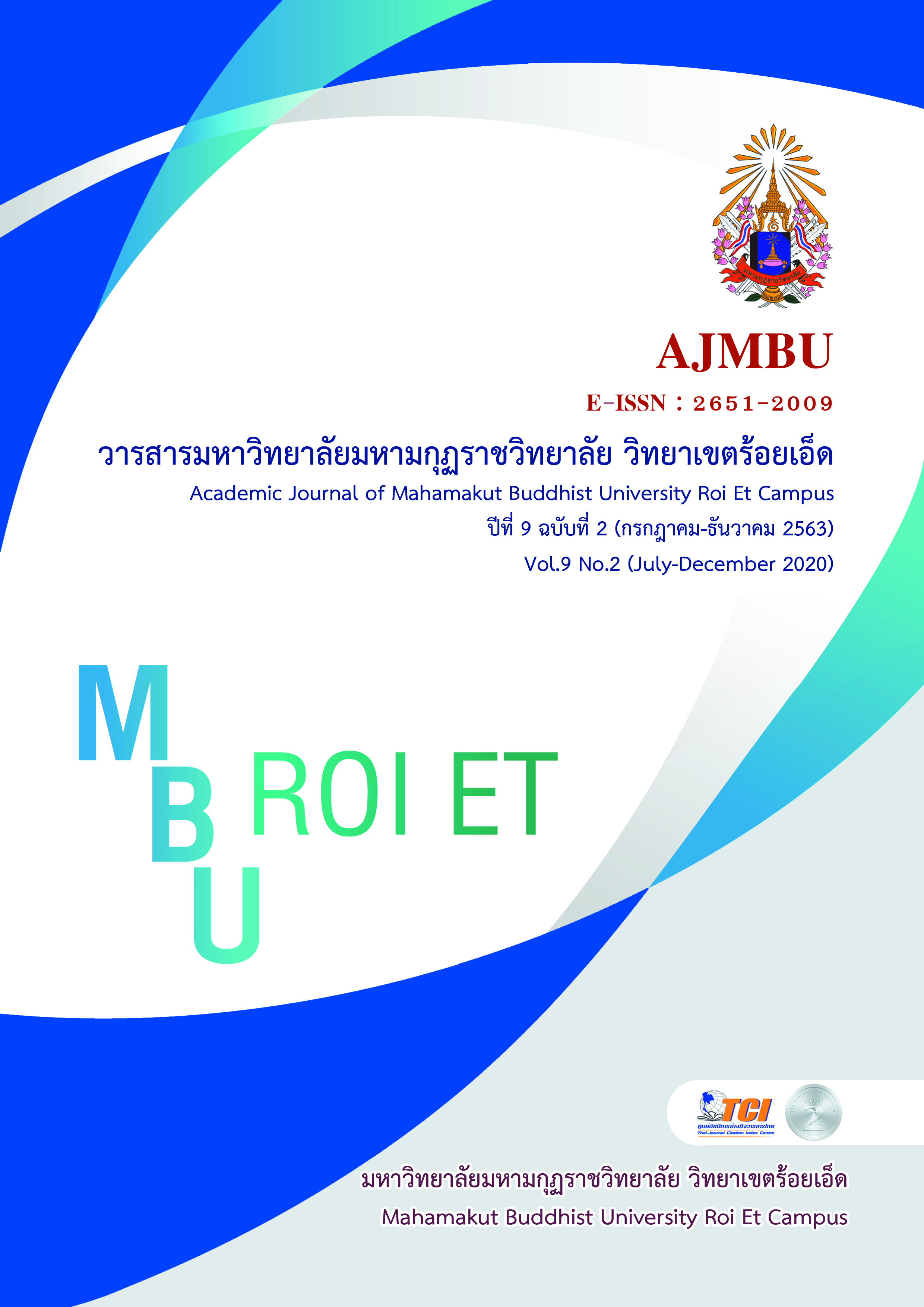Participation in Policy Formulation of Municipal Waste Disposal in Kumphawapi District, Udon Thani Province
Main Article Content
Abstract
The objectives of the research article were to 1) study the participation in establishing sewage disposal policy, 2) study the factors affecting the participation in the formulation of waste disposal policy, 3) study the forms of participation in the formulation of sewage disposal policies of the municipality in Kumphawapi district Udon Thani Province, the researcher uses an integrated research methodology. The sample consisted of 338 people. Research tools include questionnaires and interview forms. The statistic analysis used percentage, mean and standard deviation and multiple linear regression.
The research found that: 1. The level of participation in setting the sewage disposal policy of the municipality in Kumphawapi district, Udon Thani province overall, all the variables in all 3 aspects at a medium level. The level of participation in setting the sewage disposal policy of the municipality in Kumphawapi district, Udon Thani province in all aspects, all 7 variables at a moderate level. 2. Analysis of factors influencing participation in the determination of municipal waste disposal policy in Kumphawapi district Udon Thani province. Determine the weight value, the importance of each factor affecting the factors that influence the participation in the policy of waste disposal in Kumphawapi municipality. Udon Thani province overall, all aspects found that the role of community leaders The role of local With the coefficients of the predictors in the raw score equal to 0.425 0.375 respectively, with the coefficients of predictive variables in the standard score format equal to 0.629 0.793 respectively. 3. Analysis of participation patterns in determining the policy to eliminate the municipalities in Kumphawapi district Udon Thani province. The group who provided information in the interview to answer the purpose. 1. Arrange a structured policy formulation by participating in government agencies, both network partners by separating the duties of government agencies that form and strengthen activities between people And communities/ government agencies together, clear policy formulation. 2. There should be training to educate people about basic information. 3. Format the assessment of sewage disposal with government agencies involved in the assessment. Check the readiness, inspection methods according to the criteria assessed by the waste disposal officer; create a clear work structure and evaluation form.
Article Details
References
จารุณี พันธุ์เสงี่ยม. (2550). การมีส่วนร่วมในการพัฒนาชุมชนของสมาชิกชุมชนร่วมจิตร่วมในจังหวัดกระบี่. วิทยานิพนธ์ศิลปศาสตรมหาบัณฑิตสาขาวิชาสังคมวิทยาประยุกต์. คณะสังคมวิทยาและมานุษยวิทยา : มหาวิทยาลัยเกษตรศาสตร์.
นคร วัลลิภากร. (2554). การใช้อำนาจรัฐกับสื่อสารมวลชนตามรัฐธรรมนูญแห่งราชอาณาจักรไทย พุทธศักราช 2550. กรุงเทพมหานคร : มหาวิทยาลัยธุรกิจบัณฑิตย์.
บรรเจิด สอพิมาย. (2550). การมีส่วนร่วมของประชาชนในการพัฒนาทองถิ่น: กรณีศึกษาองค์การบริหารส่วนตำบลในเมือง อำเภอพิมาย จังหวัดนครราชสีมา. วิทยานิพนธ์รัฐประศาสนศาสตรมหาบัณฑิต สาขาวิชาการปกครองท้องถิ่น. วิทยาลัยการปกครองท้องถิ่น : มหาวิทยาลัยขอนแก่น.
บุญเลิศ บูรณุปกรณ์. (2546). ความพึงพอใจของประชาชนในเขตเทศบาลนครเชียงใหม่ต่อผู้บริหารเทศบาลนครเชียงใหม่. รัฐประศาสนศาสตรมหาบัณฑิต สาขาวิชาการเมืองการปกครอง. บัณฑิตวิทยาลัย : มหาวิทยาลัยเชียงใหม่.
พวงเพชร สุวรรณชาติ. (2553). ความพึงพอใจของประชาชนต่อการดำเนินการด้านโครงสร้างพื้นฐานของเทศบาลนครหาดใหญ่ระหว่าง พ.ศ. 2552 – พ.ศ. 2553. วิทยานิพนธ์พัฒนบริหารศาสตรมหาบัณฑิต สาขาพัฒนาสังคม. สถาบันบัณฑิตพัฒนบริหารศาสตร์.
เมตตา สินยบุตร. (2548). การมีส่วนร่วมของประชาชนในการดำเนินงานตามโครงการพัฒนาศักยภาพหมู่บ้าน/ชุมชน (SML) : ศึกษากรณีหมู่ที่ 4 ตำบลบ้านรอม อำเภอท่าเรือจังหวัดพระนครศรีอยุธยา. ปัญหาพิเศษรัฐประศาสนศาสตร์ สาขานโยบายสาธารณะ. วิทยาลัยการบริหารรัฐกิจ : มหาวิทยาลัยบูรพา.
รัฐธรรมนูญแห่งราชอาณาจักรไทย. (2560). สืบค้นเมือ 12 มีนาคม 2562. จาก http://www.rat chakitcha.soc.go.th/DATA/PDF/2560/A/040/1.PDF


